What's New
Displaying results 2021 - 2030 of 4052
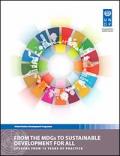
Resource | Publications,
The world cannot afford to start over with the SDGs – but must build on the improvements made under the Millennium Development Goals (MDGs). Progress will only be significant enough to achieve the Sustainable Development Goals (SDGs) if leaders avoid the temptation to start from scratch. Many countries recognize this and are adapting existing strategies and repurposing the institutions that enabled MDG progress. Their challenge is to understand, prioritize and sustain what works and adjust initiatives that have stalled, while strengthening underlying capacities, mobilizing all possible resources and putting in motion the farsighted polices the SDGs require.
This Report seeks to help them by providing key lessons from the MDG era, distilled by governments and stakeholders themselves, through National MDG Progress Reports. Between 2013 and 2015, 55 countries produced National MDG Progress Reports assessing the totality of their countries’ MDG experience. Many detail lessons they now apply to implement the SDGs. Most echo lessons UNDP learned from its experience supporting over 140 countries to achieve the MDGs.
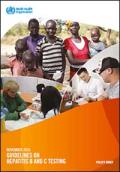
Resource | Guidelines,
These are the first WHO guidelines on testing for chronic Hepatitis B virus (HBV) and hepatitis C virus (HCV) infection and complement published guidance by WHO on the prevention, care and treatment of chronic HCV and HBV infection. These guidelines outline the public health approach to strengthening and expanding current testing practices for HBV and HCV infection, and are intended for use across age groups and populations. The primary audience for these guidelines are national programme managers in ministries of health and health-care providers in LMICs responsible for planning and implementing hepatitis testing, prevention, care and treatment services.
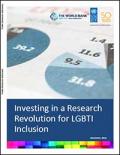
Resource | Publications,
In 2015, 193 United Nations member countries adopted the Sustainable Development Goals (SDGs) and committed to “leaving no one behind” in the effort to end poverty and inequality. Lesbian, gay, bisexual, transgender, and intersex (LGBTI) people throughout the world have led global efforts to raise awareness of their experience of ongoing discrimination, exclusion, and violence. Despite some gains that have made information more available, huge gaps in research and data on LGBTI experiences persist in every country, blocking progress toward inclusion and the realization of human rights for all. Clearly, significant donor investment in strategic research on LGBTI inclusion is needed, in both the immediate and the long term, to provide a reliable evidence base that can inform policies, legislation, programs, and investments to advance the human rights and inclusion of LGBTI people in national and global efforts.
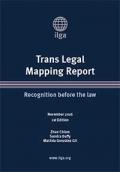
Resource | Laws and Policies,
This first edition is a compilation of laws, administrative procedures and processes setting out the ability and limits of trans and gender-diverse people around the world to change their sex/gender markers and names on official identity documents. It focuses on these two aspects because they are often what trans and gender-diverse people first seek to change in order to access other rights and services in their everyday lives. They are also critical when crossing borders and establishing one’s identity in a new country or city—a scenario which is perhaps more common for trans people than the general population.
This report sets out whether a process is established in primary legislation, through a court application, in an administrative rule, in policy, or simply not defined. The distinction between these will be of use to advocates who seek to undertake either legal reform or policy change in these countries.
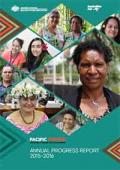
Resource | Publications,
This is the second progress report of Pacific Women Shaping Pacific Development (Pacific Women). It provides a summary of the program’s achievements and challenges from July 2015 to June 2016. Pacific Women is a 10-year $320 million initiative that aims to support women – regardless of their income, location, disability, age or ethnic group – in the 14 Pacific Island Forum countries to participate fully, freely and safely in political, economic and social life. Pacific Women supports countries to meet the commitments made in the 2012 Pacific Islands Forum Leaders’ Gender Equality Declaration.
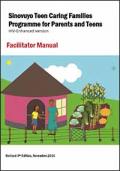
Resource | Tools,
This manual is a resource for Facilitators who have attended a Facilitator Training Workshop on the delivery of the Sinovuyo Caring Families Programme for Parents and Teens. In it you will find the contents of this 14-week parenting programme.
This is a simple manual to use and provides a guide for you on how to deliver the programme each week.
The main purpose of the Sinovuyo Caring Families Programme for Parents and Teens is to help cultivate open, caring and trusting relationships between caregivers and their teenagers. Healthy and positive relations help parents to protect their adolescents against a variety of negative health and social outcomes.
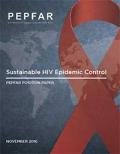
Resource | Publications,
The global response to the HIV pandemic has been unprecedented. Billions of dollars and millions of people were quickly mobilized to save lives and fight the pandemic. The gains have been tremendous. If country governments, donors, and civil society work in partnership, and continue to ensure every investment has a clear outcome, it is within our grasp to control the epidemic. Yet, this potential success is at risk if we do not take decisive actions to ensure the HIV response is sustainable. A series of concrete actions are available that will have rapid impact and accelerate our progress towards long-term sustainability.
In 2015, PEPFAR took dramatic new steps to hardwire sustainability into its business processes, developing strategic approaches to move the sustainability agenda forward, and measure progress. This paper sets forth PEPFAR’s tactics to sustainably build national HIV responses and practices that monitor progress toward sustainable epidemic control and achievement of the global 90-90-90 goal.
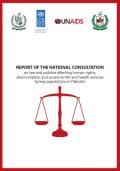
Resource | Publications,
This report presents a summary of existing policy and legal environment related to HIV services in Pakistan which safeguard the universal human rights of the key affected populations with regard to the HIV prevention, care and treatment. The report reflects mainly on the process, important discussions and recommendations which premised the need for the formulation of a national level action plan aimed at creation of an enabling environment. The report along with the action plan annexed provides the stakeholders a broader framework of understanding on some prioritized actions necessary to ensure the inclusion and participation of key populations in Pakistan to augment and sustain the enabling environment essentially needed for an improved national HIV response.
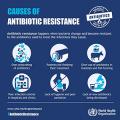
Resource | Infographics,
The WHO World Antibiotic Awareness Week held from 14 to 20 November 2016. The campaign aims to increase awareness of global antibiotic resistance and to encourage best practices among the general public, health workers, policy-makers and the agriculture sector to avoid the further emergence and spread of antibiotic resistance.






